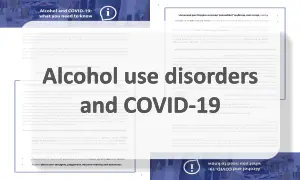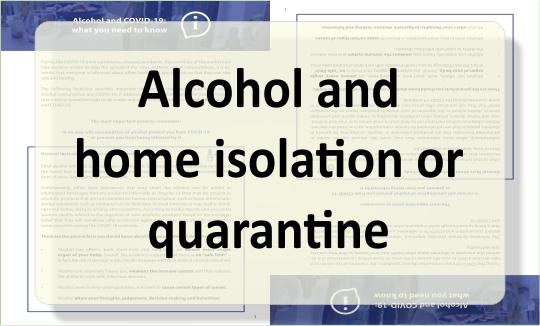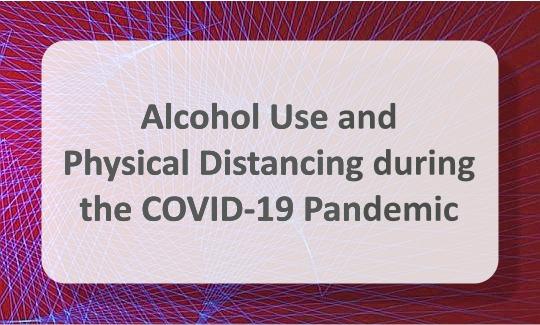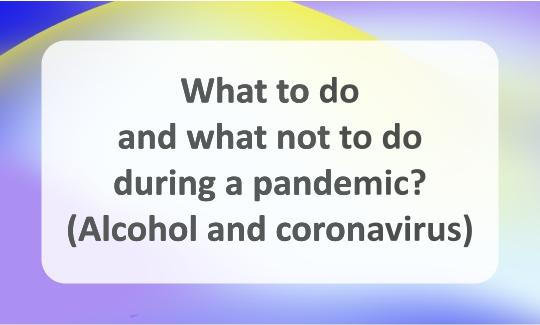Alcohol use disorders and COVID-19

Alcohol use disorders are characterized by heavy alcohol use and loss of control over alcohol intake. Although they are among the most prevalent mental disorders globally, they are also among the most stigmatized.
People with an alcohol use disorder are at greater risk of COVID-19 not only because of the impact of alcohol on their health but also because they are more likely to experience homelessness or incarceration than other members of the population. It is therefore essential, under the current conditions, that people who need help because of their alcohol use get all the support they need.
If you, or a person close to you, have problems in relation to alcohol use, please consider the following:
- The present situation is a unique opportunity to quit drinking, or at least to cut down considerably, as various social cues and peer pressure situations, such as parties, friends’ gatherings, restaurants and clubs, are (by necessity) avoidable.
- Online interventions for alcohol use disorders by professionals and mutual help groups can be less stigmatizing as they offer greater anonymity and privacy, so check out what help you can get online.
- Create a buddy and self-support system with someone you trust and reach out for extra help if needed, such as online counselling, interventions and support groups.
- Practise physical distancing, but do not socially isolate: call, text and/or write to your friends, colleagues, neighbours and relatives. Use new and creative ways of connecting to others without actual physical contact.
- Avoid alcohol cues and triggers on TV and media where there is pervasive marketing and promotion of alcohol; be careful to avoid links to social media that are sponsored by the alcohol industry.
- Try to maintain your daily routine as much as you can, focus on things that you can control and try to keep grounded – for instance, through a daily workout, hobbies or mind relaxation techniques.
- If you become infected, discuss with health personnel your alcohol consumption so that they can make the most appropriate decisions with respect to your overall health condition.
Alcohol and home isolation or quarantine
To limit the spread of COVID-19, countries have progressively introduced community-wide lockdowns and periods of quarantine for those who are suspected of having contracted the virus or have been in contact with someone infected by the virus. This means that an unprecedented number of people are now staying in their homes. It is important to understand that alcohol poses risks to your health and safety and should therefore be avoided during periods of home isolation or quarantine. When working from home, adhere to your usual workplace rules and do not drink. Remember that after a lunch break you should still be in a fit state to work – and that is not possible if you are under the influence of alcohol. Alcohol is not a necessary part of your diet and should not be a priority on your shopping list. Avoid stockpiling alcohol at home, as this will potentially increase your alcohol consumption and the consumption of others in your household…
Alcohol use and physical distancing during the pandemic
Alcohol Use and Physical Distancing during the COVID-19 Pandemic To help slow the spread of the virus, the World Health Organization (WHO) recommends keeping at least three feet away from sick people as a protective measure. Bars, casinos, nightclubs, restaurants, and other places where people gather to consume alcohol, as well as house calls, increase the risk of transmission. Therefore, a protective measure such as physical distancing reduces the availability of alcoholic beverages and gives you a good opportunity to reduce your alcohol consumption and take care of your health. Read more What to do and what not to do during…
What to do and what not to do during a pandemic?
Alcohol: Do's and Don'ts During a COVID-19 Pandemic To avoid weakening your body's immune system, harming your health, and creating health risks for others, you should completely avoid drinking alcoholic beverages. Only in a sober state can you maintain vigilance, speed of reaction and action, and clarity of mind when making decisions that affect you personally, your family members, and members of your environment. If you consume alcohol, reduce the amount to a minimum…


